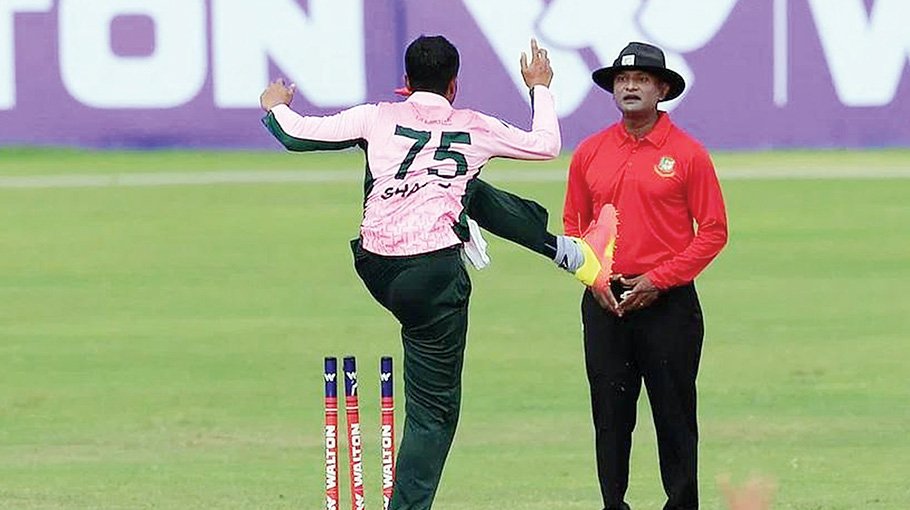Player-umpire conflict in domestic cricket

Many critics argue that despite being a Test-playing nation for over two decades, Bangladesh has not developed a robust domestic cricket culture. However, this perspective doesn't fully capture the reality.
Club cricket in Bangladesh began amidst the turmoil of the post-war period with the first Dhaka League in 1974. Over nearly fifty years, a domestic cricket structure has emerged, albeit imperfectly, fostering a cricketing culture. Ironically, this very culture has often hindered the progress of Bangladesh cricket.
Rather than promoting sportsmanship and excellence, domestic cricket in Bangladesh has been marred by the dominance of major clubs and star players, who often exert undue influence over umpires. This has led to a pervasive mistrust between players and officials, a problem that continues to affect the sport in the country.
In the early 1990s, the rivalry between top clubs like Abahani and Mohammedan was intense, often leading to biased umpiring decisions in favour of these teams. This environment created bad habits among players, who became accustomed to preferential treatment at home but struggled internationally where such advantages were absent.
Veteran journalists from that era recall how umpires had to be cautious with every decision to avoid inciting riots among passionate fans. Influential players of the time, such as Minhajul Abedin Nannu and Akram Khan, were known to leverage their status, which ultimately made it harder for them to perform consistently on the international stage.
The mistrust sown in those early years has only grown, with modern players frequently displaying dissent towards umpires. This issue came to a head in 2021 when Shakib Al Hasan, frustrated by an umpiring decision, kicked the stumps and later uprooted them in a dramatic display of dissent.
The Bangladesh Cricket Board (BCB) had an opportunity to set a strong precedent by imposing a severe punishment on Shakib. However, the relatively mild sanctions did little to deter similar behaviour from other players.
The ongoing 26th National Cricket League (NCL) has seen a worrying number of code of conduct breaches. Reports indicate that the first three rounds of the NCL this year have already witnessed 11 breaches, nearly matching the total from last year's four-day tournaments.
Many of these incidents stem from players reacting poorly to contentious umpiring decisions. While players must maintain respect for officials, the frequency of these breaches highlights a deeper issue within the domestic cricket culture.
Chattogram Division's wicketkeeper-batter Irfan Sukkur, for instance, was fined and penalised for his misconduct during a match against Sylhet Division. He admitted to reacting inappropriately to an umpiring decision, reflecting the ongoing struggle to foster a respectful and professional environment in Bangladesh's domestic cricket.



